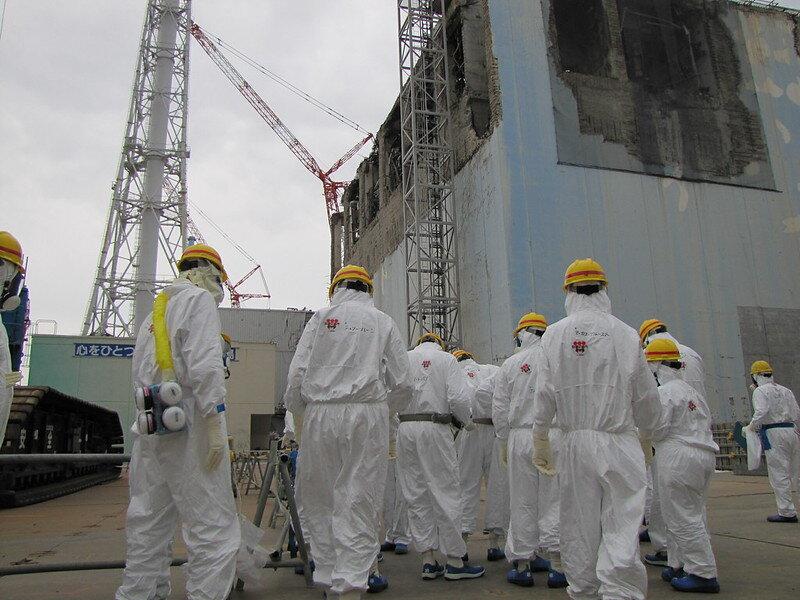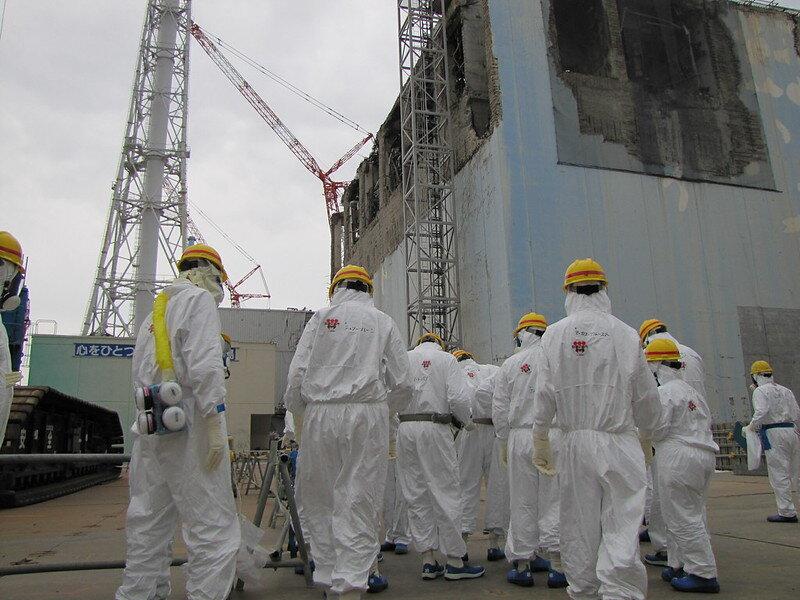On Tuesday, the Japanese government made the decision to release 1.3 million tons of water that has been contaminated with radiation into the Pacific Ocean. The radioactive water has been accumulating since 2011 due to the massive earthquake and tsunami that occurred in March of that year. It is currently being stored at the Fukushima Daiichi Nuclear Power Plant and its storage is expected to reach capacity in the next year.
COURTESY // The National Academies
The decision to release the contaminated water has been in conversation for years. Due to the safety concerns and backlash from neighboring countries and residents, the plan to release the water was postponed until now. Although the amount of protest to this decision is still just as prominent as it was years ago, Cabinet ministers in Japan concluded that the ocean release is the only feasible solution.
According to NBC News, the Prime Minister of Japan, Yoshihide Suga, stated that since the decommissioning of the power plant is expected to take decades, the release of the contaminated water is unavoidable. Suga has also guaranteed that the Japanese government will do everything possible to ensure the safety of the water to prevent possible damage that could be inflicted on local fisheries and agricultural sites.
Even with the pledge from the Prime Minister and the government, local residents and business owners are still upset about the decision and believe that it is extremely unsafe and ill-considered. The pledge that was made is extremely vague and gives no details on what exactly is going to be done to prepare the water for treatment. By not disclosing specific details it seems very secretive and confusing.
In order to ease the public’s concerns, Tokyo Electric Power Corporation, the nuclear plant’s operator, has come out with a statement. They state, “tritium, which is not harmful in small amounts, cannot be removed from the water, but all other selected radionuclides can be reduced to levels allowed for release.” Tritium is a naturally occurring radioactive form of hydrogen that is produced in the atmosphere when cosmic rays collide with air molecules. The other radionuclides that can be reduced have not been specified.
China and South Korea have entered the conversation about this decision. China has criticized the idea of dumping radioactive water into the ocean. South China Morning Post states the Foreign ministry spokesman Zhao Lijian said China should, “adopt a responsible attitude,” considering they had not taken into account the health concerns of neighboring countries. According to NBC News Associated Press, the Minister of South Korea’s Office for Government Policy Coordination, Koo Yun-cheol said the plan was “absolutely unacceptable” and urged Japan to disclose how the water is treated and its safety is verified.
Even with the statement from the plant’s operator and government officials, the decision to release the water into the ocean that is populated with fish is irresponsible. It must be considered that the long-term effects on the environment with the exposure to radioactive water are still unknown, according to scientists, this decision could cause future problems that they are not currently aware of. The amount of radioactive nuclides, which are distinct types of atoms, remaining in the water after the levels are lowered is still unknown to the public.
Environmental groups, as well as residents and fisheries, believe that the disposal of the water is “ignoring environmental safety and health, while adding a further blow to Fukushima’s image and economy from the water discharge that will continue for decades,” stated NBC News Associated Press. The chairman of Japan Fisheries Cooperatives, Hiroshi Kishi had met with the Prime Minister a week before the decision had been made. Kishi thinks the decision is unacceptable and it tramples on the fishing industry because their concerns were not taken seriously.
With the outstanding amount of backlash from the public and other countries, this decision was made without taking their concerns into full consideration. The Japanese government has stated that their plans to release the radioactive water will not begin for another two years. The Japanese government should take this time to do more research on other possible solutions to treat and find a proper way to dispose of the water. However, if this truly is the only way out they should at least release an official disclosed statement on what exactly is being done to this water to ensure that it is safe. The public and other countries are clearly not aware of the treatment details and fear that this could endanger more than just their diets.





![[Both photos courtesy of sonoma.edu]
Ming-Ting Mike Lee stepped in as the new SSU president following Sakakis resignation in July 2022](https://sonomastatestar.com/wp-content/uploads/2024/04/CC4520AB-22A7-41B2-9F6F-2A2D5F76A28C-1200x1200.jpeg)



























